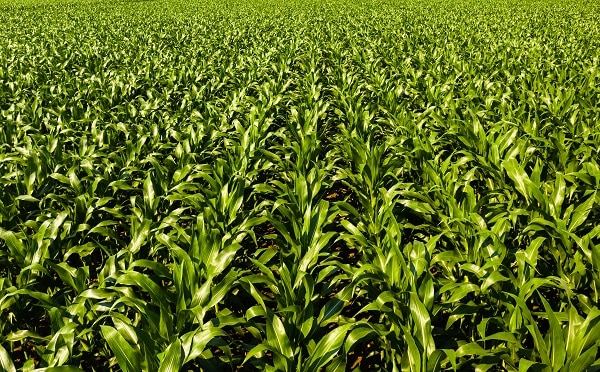Do you like to garden? If so, you may be looking for ways to improve your gardening experience. One way to do this is by using vinegar in your garden. Vinegar has many benefits that can help your plants grow healthy and strong. This article will discuss how you can use vinegar in your garden. We will also provide some tips on how to use it effectively. So, whether you are a beginner or an experienced gardener, read on to learn more about vinegar and its benefits!
Contents
The Best Kind Of Vinegar For Your Garden Needs
There are many different types of vinegar, but not all are created equal in gardening. For example, distilled vinegar is too acidic for most plants, and you should avoid it. Similarly, fruit-based vinegar (like apple cider vinegar) can harm some plants. The best kind of vinegar to use in your garden is white vinegar. White vinegar has a relatively neutral pH, which makes it safe for most plants. It also has a high acidity level, which makes it effective at killing weeds and preventing disease. For the best results, look for white vinegar with an acidity level of at least 5%.
Weed Killer
Anyone who has ever worked in a garden knows weeds are a nuisance. Not only do they take up valuable space, but they also compete with other plants for nutrients and water. Unfortunately, conventional weed killers can be expensive and chemically harsh. Vinegar, on the other hand, is a natural weed killer that is both inexpensive and effective. Just as vinegar can kill weeds in your lawn, you can use it to control weeds in your garden. Mix equal parts vinegar and water in a spray bottle and apply it to the leaves of weeds. The vinegar will kill the weeds within a few days. Apply the vinegar on a sunny day with little or no wind for the best results. You can also add a bit of dish soap to the mixture to help the vinegar stick to the leaves of the weeds.
Pests
Vinegar is a great way to get rid of garden pests. Mix equal parts water and vinegar in a spray bottle, and you’re ready. The acid in the vinegar will kill most garden pests on contact. You can also use it as a preventative measure. Sprayed on leaves and it will create a barrier to repel many common pests. And if you’re worried about harming your plants, don’t be. Vinegar is non-toxic and won’t harm most plants. However, using caution when spraying around delicate plants is essential, as the vinegar can damage their leaves. When used correctly, vinegar can be a powerful tool in the fight against garden pests.
Gardening Pots
If you love spending time in your garden, then you know how important it is to keep your gardening pots clean. Over time, dirt and grime can build up outside pots, making them difficult to clean. However, there is an easy way to clean your pots using vinegar. Mix equal parts water and vinegar in a spray bottle and apply it to the outside of your pots. Let the mixture sit for a few minutes before scrubbing with a brush. You may need to repeat the process a few times to remove all the dirt and grime. Once you’re finished, rinse your pots with clean water and allow them to dry. You’ll be amazed at how easy it is to keep your pots clean using vinegar.
Tools
Vinegar is a household staple with many uses and can also be a helpful tool in the garden. Vinegar can be used as a natural herbicide and can also help control slugs and snails. Vinegar can be a mild disinfectant for garden tools and surfaces when diluted with water. You can also use it to clean bird baths and bird feeders. In addition, vinegar can help keep plants healthy by increasing the soil’s acidity. When used in moderation, vinegar can be a helpful addition to any gardener’s toolkit.
Plant Food
Many gardeners are familiar with the benefits of using vinegar as a weed killer, but did you know it can also be plant food? Vinegar is rich in nutrients that plants need, including potassium, phosphorus, and nitrogen. Diluted with water, vinegar can be used as a foliar spray to help plants absorb these nutrients more easily. Additionally, you can use vinegar to lower the pH of the soil, making it more acidic and better suited for plants that thrive in acidic conditions. As with any gardening product, it’s important to use vinegar carefully and only as directed. Too much vinegar can damage plants, so always avoid caution when using it in your garden. With a little care, however, you can harness the power of vinegar to create a healthy and thriving garden.
Outdoor Furniture
Vinegar has a reputation for being a versatile household cleaner, and that extends to outdoor furniture as well. Whether your patio furniture is plastic, metal, or wicker, vinegar can help to restore its original luster. For best results, start by mixing equal parts vinegar and water in a bucket. Then, apply the solution to your furniture using a soft cloth and scrub gently. Rinse the furniture with clean water and allow it to air dry. You may need to repeat this process several times for stubborn dirt and grime. In addition to cleaning outdoor furniture, vinegar can also remove rust from metal surfaces. Apply vinegar to the affected area with a cloth and scrub until the rust comes off. Rinse the area afterward and dry it completely to prevent further corrosion. With a bit of elbow grease and a gallon of vinegar, you can keep your outdoor furniture looking new for years to come.
Try Using Vinegar In Your Garden Today!
Vinegar can be a helpful addition to any gardener’s toolkit. Vinegar is up to the task, whether you’re looking for a natural weed killer or a way to clean your patio furniture. So next time you’re at the store, pick up a bottle of vinegar and try it in your garden. You may be surprised at how useful it can be. Happy gardening!





